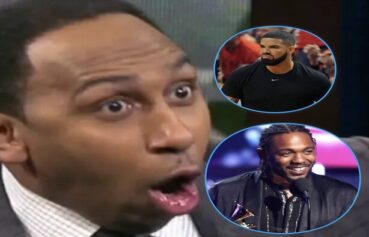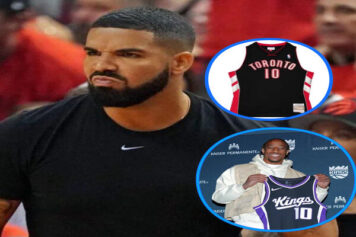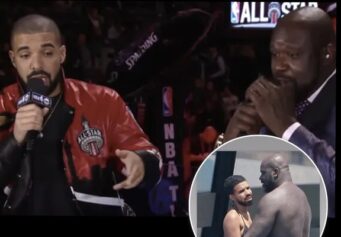Drake’s Nothing Was The Same is really good. Gotta start there, because otherwise zillions of teenagers will swarm every inbox I have. That generation is a sensitive bunch. But that’s not merely preventative. Even if Drake can’t sing, he's created a worthy album – it’s the god’s honest truth.
Good luck finding a better made album, with its flawless production, seamless transitions and top-notch rapping. It’s a testament to the value of letting one producer – Drake's chief collaborator Noah '40' – handle the lion’s share of the tracks. The consistency of time and place that this often brings, Drake can rap his ass off, and there’s no track he rhymes on — when he rhymes — that he doesn’t get handle. He’s clever, has a voice that jumps out on every track and has moments of amazing clarity. Anyone who says Drake is wack or can’t acknowledge the brilliance on NWTS is probably hating.
So why does this album get on my last nerve? Because, for the first time, I can legitimately say a big reason I can’t get with something is because it makes me feel old.
***
I’m 33 years old. I graduated from high school in 1997, about three weeks before Wu-Tang Forever came out. In 2013, the Wu’s music has made rap’s canon, but just as fascinating at the time was their unlikely ascent. After selling out to try to get on ( “Come Do Me,” “Ooh We Love You Rakeem”), the RZA and GZA took their music in a totally opposite direction, going for unapologetically hardcore beats and working with emcees that did little to nothing to make themselves accessible. And it made them stars, brilliant businessmen whom operated with a cooperative capitalism and figured out how to sell hip-hop almost totally devoid of pop (and did so with an uncommon level of control).
So imagine how hard I laughed hearing Drake do a love song over a track that sampled “It’s Yourz” from Wu-Tang Forever, an album where RZA decries what he called “R&B – rap and bullshit.” Play the track without the title and it’s bananas. It’s definitely a track you’d expect from Drake, one you could play for a lady, maybe even because she requested. It knocks and Drake does the job. But isn’t a track like that exactly what RZA was talking about? How painfully lacking in self-awareness must one be to miss the irony? The dude sings with AutoTune.
Then again, why am I even asking that about someone who, without one iota of shame, sang a song about drunk dialing his ex-girlfriends? Or maybe I should ask a different question: why ask at all?
While rappers who dropped in the ‘90s have found lanes that allowed them to grow up on the mic, rap – with its raging and oft-misguided masculinity – will always be a youth-centric genre. It will speak to youths first and respond, in kind, with what they’re into. You can find rap to get into as you get older, but rap won’t go out of its way to find you.
Those who came up listening to gangsters, pimps and revolutionaries are at least one full generation away from Nothing Was the Same. The notion of reminiscing on the good times he spent with a waitress from Hooters on “From Time” – good times that seem to involve, like, hanging out – one track after invoking AMG and the Ol’ Dirty Bastard comes with uncommon cognitive dissonance.
What’s so strange to us isn’t that Drake raps about women, or blatantly panders to them, nor how it contradicts the album’s unavoidable misogyny. It’s the simple fact he’s willing to admit these things in public right after trying – and failing – to sound hard…and the fact millions of kids shamelessly relate to it.
This isn’t the rap I grew up with. Seeing how rarely I’ve heard men confess these things among themselves, it isn’t the world I grew up with, either. It’s the millennial generation . It’s the millennial generation – one that fights to stay young the same way my cohorts clamored to be men, even if through contrived machismo – staking its claim to hip-hop. There’s a difference between the Nas-coined “Second Childhood” and never leaving the first one.
It’s a world I don’t like, one I don’t understand…and some other stuff old people say when they realize what they thought was cool is yesterday’s news. Rappers aren’t just pop accessible. Many carry themselves like pop stars, singing from stools on stages and proudly declaring their desires to avoid being seen strictly as emcees, if they even care about the magnitude of that title. And what makes me feel older — I firmly believe that’s the youth’s problem and not ours.
***
Drake’s probably the most polarizing rapper ever. Legends like Bun-B gave him the crucial co-signs he needed, as a former child star from Canada, for legitimacy. Others, like DMX, have dismissed what he does. But is the problem his music, or the fact that it resonates?
Our fussing at Drake feels analogous to what we heard from people who said that the boys down South didn’t make “real” hip hop. Rap’s paradigm was changing, and the most startling part was no one asked them if they were coming along for the ride. The culture they felt they helped create had outgrown them, and they liked it the way it was.
That’s where Generation X stands now. But is it hip-hop that’s changed so much, or the people who make it? Whether talking specifically about the music, or just youth in general, Drake is the first time many of us have felt left out of something that had always pulled us close. He’s not for us, and it’s enough to make us wonder if the same could be said about hip-hop.
Nothing Was The Same ? If nothing else, he got the title right, even if the music feels so wrong.



